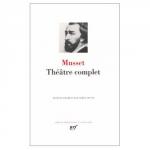|
This section contains 5,760 words (approx. 20 pages at 300 words per page) |

|
SOURCE: King, Russell S. “Romanticism and Musset's Confession d'un enfant du siècle.” Nottingham French Studies 11, no. 1 (May 1972): 3-13.
In the following essay, King acknowledges that La Confession d'un enfant du siècle is a decidedly Romantic work featuring Musset's projection of the post-Napoleonic social malaise in France and comments on the novel as it analyzes a young libertine who succumbs to a lack of faith in his society and its ideals.
Musset published his only novel, La Confession d'un Enfant du Siècle, in 1836. Professor Grimsley is right to complain that the work is too infrequently examined for its intrinsic literary merits.1 Readers and critics have tended to concentrate on two aspects of this work. Firstly they have seen the novel in an autobiographical light, comparing the hero with Musset himself and the heroine with George Sand, emphasizing similarities and discrepancies between the real relationship and the...
|
This section contains 5,760 words (approx. 20 pages at 300 words per page) |

|


